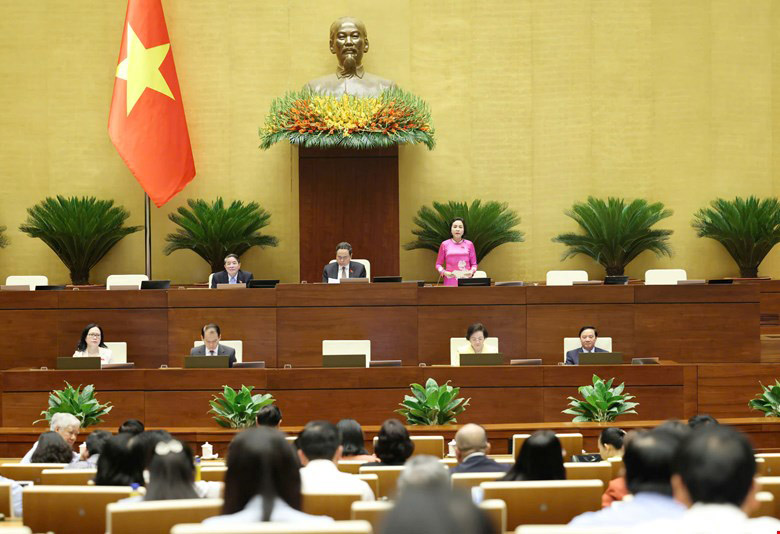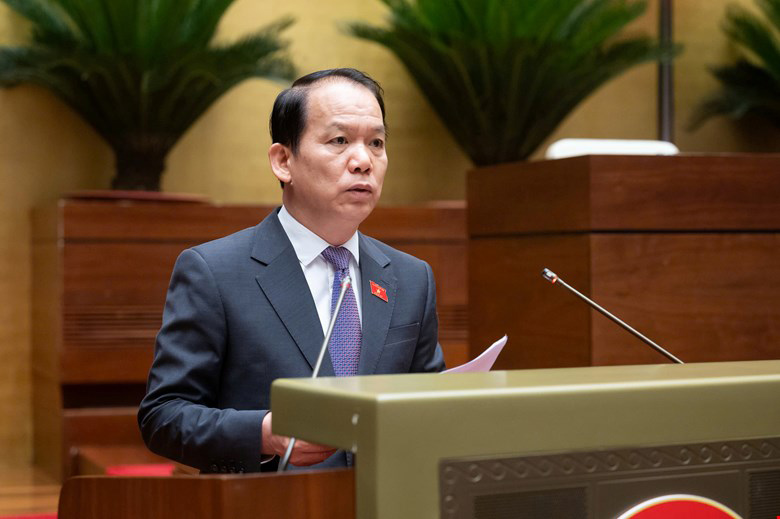The Draft Law on Cadres and Civil Servants (amended) is being discussed by the National Assembly. The basic content of the draft Law focuses on issues such as regulations on cadre connectivity; regulations on the mechanism for managing and using cadres and civil servants in a transparent and effective manner...
Clause 2, Article 31 of the Law on Cadres and Civil Servants (amended) on civil servant assessment and classification clearly stipulates the handling of civil servants who do not complete their tasks.
Accordingly, civil servants classified as not completing their tasks will be considered by the civil servant management agency and assigned to a job position with a lower rank or dismissed due to not meeting the requirements of the agency, organization or unit.
Point b, Clause 2, Article 31 clearly states that civil servants who have been classified as not completing their tasks for 2 consecutive years will be dismissed by the civil servant management agency.
The results of civil servant assessment are recorded in civil servant records, notified to civil servants who are assessed and publicly notified in the agency, organization or unit where the civil servant works.

Regarding the assessment content, Article 30 of the Law on Cadres and Civil Servants (amended) stipulates that civil servants are assessed according to the following contents, including:
Comply with the Party's guidelines, policies and policies and the laws and regulations of agencies, organizations and units;
Ethnicity and culture of performing public duties. In cases of direct contact and settlement of work of people and businesses, it is necessary to evaluate the service attitude and satisfaction of people and businesses;
Capacity, responsibility and ability to meet job position requirements;
Results of performing tasks and work through quantity, quality and progress of products according to job position.
For civil servants holding leadership and management positions, in addition to the above contents, they are also evaluated according to the following contents, including:
The results of the activities of the assigned agencies, organizations and units are led and managed according to the working plan;
Capacity to gather and unite;
The spirit of innovation, dynamism, creativity, daring to think, daring to do, daring to take responsibility for the common good.
The draft Law also emphasizes that the evaluation work must be based on the results of performing specific tasks and work products according to the requirements of the job position, instead of based on general criteria, form or feel.

Regarding the above issue, the National Assembly's Legal and Judicial Committee (CPPPTP) - Agency for verification of the Bilateral Law on the basic law approves the Draft Law on the Law on civil servants in the direction of emphasizing the evaluation of specific results and products according to each job position.
The results of the assessment are the basis for implementing the regime and policies and for screening and arranging to appropriate job positions or laying off civil servants who do not meet the requirements of the job position.
The People's Committee also said that there are opinions suggesting that the Government should develop clear, transparent, and Qualitative assessment criteria during the implementation process, ensuring objectivity, fairness, and transparency.
At the same time, the People's Committee finds that it is necessary to specify the deadline and statute of limitations for disciplinary action against cadres and civil servants as in the draft Law, because the deadline and statute of limitations for disciplinary action is an important issue, directly related to the rights and obligations of cadres and civil servants who have committed violations, as a basis for disciplinary action.
However, the UBTPPL recommends that the drafting agency continue to review and revise relevant regulations on classification, evaluation and discipline of cadres and civil servants to ensure consistency and fairness.










